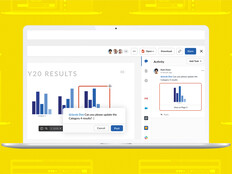Moving Toward Better Data Sharing in Healthcare
But we need to do better. We waste an estimated 30 cents of every healthcare dollar. Eighteen percent of U.S. gross domestic product goes to healthcare — more than $12,300 per person per year — which is more than twice the average for member countries of the Organization for Economic Cooperation and Development (Germany comes in a distant second, at $7,300 a year per person).
Several of the big sources of that waste — failure of care delivery, failure of care coordination, overtreatment or low-value care, and fraud and abuse — clamor for better data sharing, not only of patient data, but also of machine data and process data.
The barriers to doing so are real, of course. Patients are rightly wary of detailed health information being hacked or used in discriminatory ways. Elsewhere, healthcare businesses rightly view data as deserving particular protection. Laws protecting health-related and other data (such as HIPAA in the U.S.) place limits on what providers, insurers and others can share and how patient consent is obtained.
Yet patients seem willing to trade their health information for better care. A recent survey showed 81 percent supported better access to health information for patients and providers. A different survey showed their enthusiasm varies depending on whom they’re sharing it with: from 72 percent for physicians to 53 percent for health insurers, 25 percent for health technology companies and just 11 percent for tech companies.
DISCOVER: How technology helps identify and track social determinants of health data.
The Real Benefits of Sharing Data Across Healthcare Players
Health tech and tech companies, however, will be indispensable to solving the data sharing conundrum. So, we must clearly communicate how data sharing can fundamentally improve the quality and efficiency of healthcare, and that combining data sources and boosting the volume and diversity of shared data boosts the scientific value of that data exponentially for patients, businesses and the overall healthcare landscape.
These synergies can manifest through the controlled sharing of data that today is generally sealed up in the silos of payors, regulators, public health institutions, pharmaceutical companies, wholesale drug distributors, retail pharmacies, providers and, yes, patient records.












